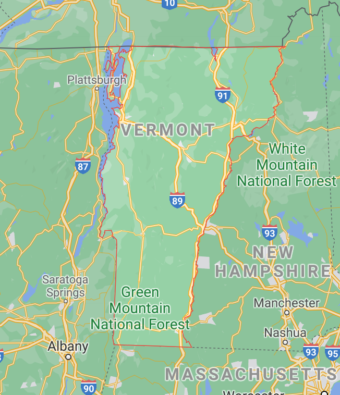A few years ago, Vermont set up Communications Union Districts (CUDs) to manage broadband outreach in more remote areas of the state. Since that time, the pandemic changed broadband delivery plans and financing, necessitating a fresh look at how best to address the spread of digital communications. As Vermont Public notes, federal funding has done much to bring high speed connectivity to Vermont. However, there is still work to be done and the CUDs are ruminating on the best way to move forward.
“We, and all CUDs, have learned a lot in the two years since our initial business model was written in June 2022,” stated Gabby Ciuffreda, Deerfield Valley Fiber Executive Director. “That model included several cost assumptions based on the best information available at that time. When revising our business model, we realized that we did not capture all costs as completely as we could have. The new model includes more accurate labor costs for the installation of certain equipment to connect to customer locations.”
Even with the ARPA funding, Deerfield Valley Fiber reports that broadband delivery has been more expensive than originally anticipated. The CUDs, which rely heavily on volunteers, also say they are now competing with commercial outfits eager to claim their share of government monies. DVFiber, which serves 24 communities in southern Vermont, has asked the Vermont Community Broadband Board (VCBB) to allow changes to its prior business plan in recognition of the “unforeseen budgetary overages” it has encountered.
“DVFiber remains committed to universal service to all on-grid addresses in our District. We will work toward that goal as fast as our funding resources enable us to proceed,” noted Ciuffreda. “This requested grant amendment is intended to impact the timing and funding used to construct certain phases of the project. Thus we are adjusting our business strategy to respond to the competitive environment and the working realities we are experiencing.”
Approximately $229 million of BEAD funds are being disbursed to Vermont broadband outreach efforts. DVFiber has requested approximately $18 million for its projects. The VCBB has been supportive of their state CUDs, praising them for the work they do in bringing connectivity to rural communities, according to Vermont Public.
“These are risky business cases. That’s why they exist,” said VCBB Rural Broadband Technical Assistance Specialist Alexei Monsarrat, in praise of CUDs. “The private sector would not do it. And the CUDs are always working to manage the risk involved in trying to serve locations that don’t have the kind of density that make an easy commercial case.”





Reader Interactions